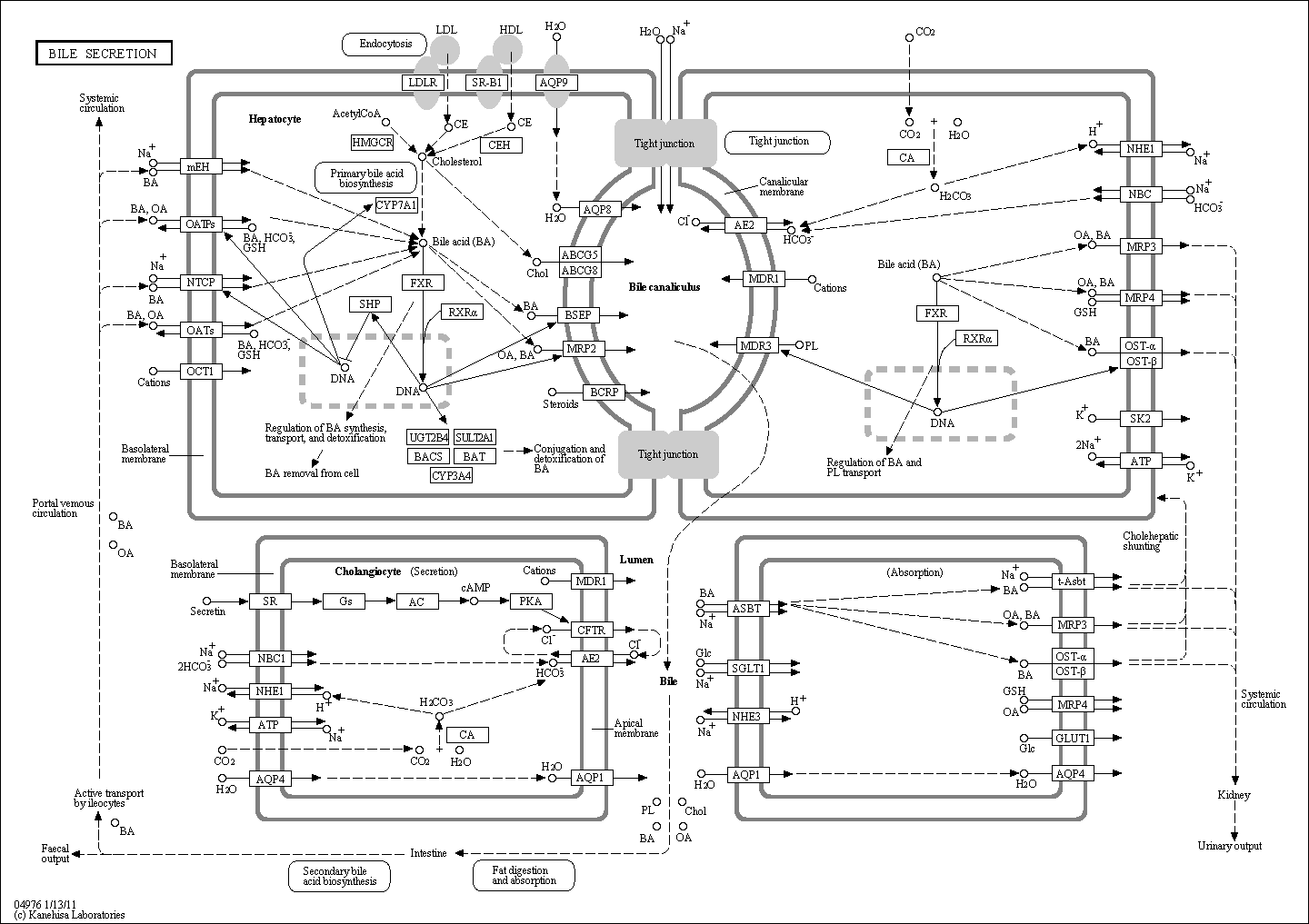Bile Secretion
Description: Bile is a bitter-tasting fluid that contains electrolytes, water, cholesterol, bile acids, bilirubin and phospholipids. Bile is produced by the liver and travels through the biliary tract into the small intestines. The purpose of Bile secretion is for digestion and absorption of fats and fat-soluble vitamins. Bile also eliminates the waste product, bilirubin, as it exits the body in feces.
Further modification of bile occurs in the gall bladder, where bile is stored and concentrated. In the gall bladder, bile is concentrated five-fold due to absorption of water and electrolytes. Additionally, bile is essential for the elimination of cholesterol, as cholesterol is made soluble by bile acids and lipids.
Relatively large amounts of bile are secreted into the intestine each day, but 95% of the bile acids are reabsorbed back into the blood. There they will return to the the liver to be reused.

Related BMRB Molecules
- Bilirubin
- cAMP
- L_Carnitine
- Cholic Acid
- Lithocholic Acid
- Choline
- Folate
- D-(+)-Glucose
- L-Glutathione, Reduced
- alpha-Ketoglutaric Acid
- Salicylate
For complete information about pathway, see KEGG [map04976]
